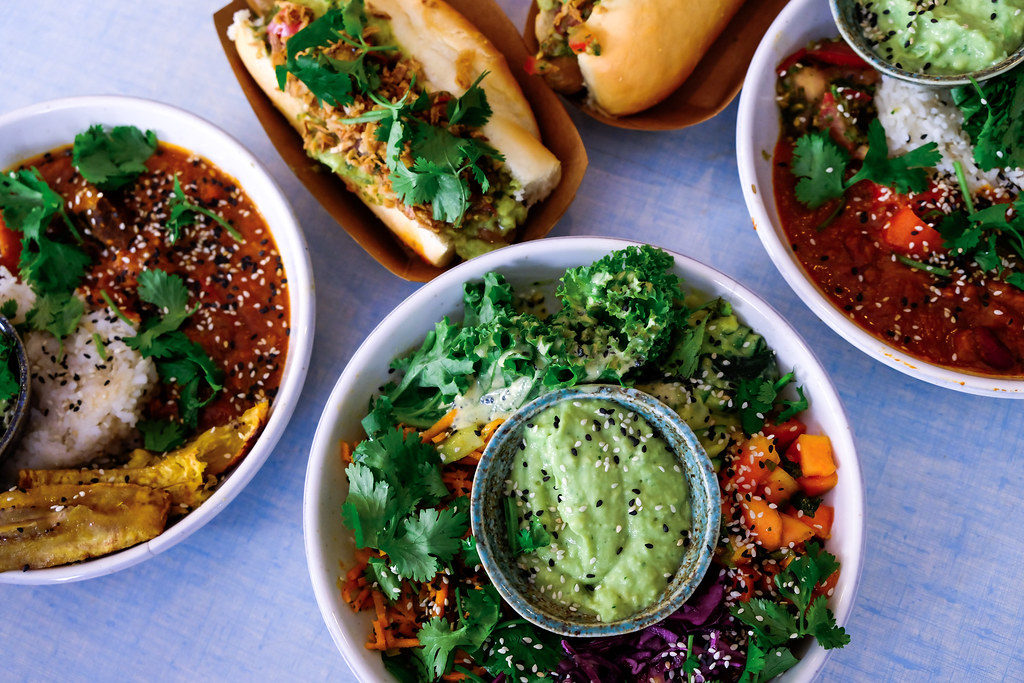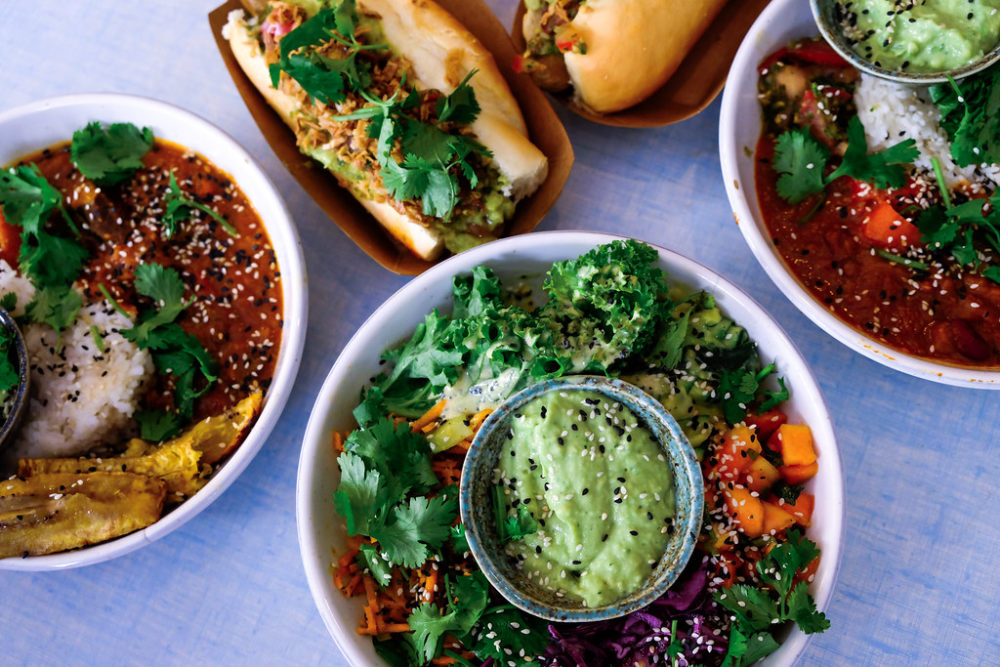What is it, and why you should consider getting involved

Plant-Based March motivates people to eat a vegetarian lifestyle.
#PlantBasedMarch is a challenge to go meat-free or to reduce the amount of meat a person eats. Some are involved in this movement for animal rights, while others are participating to raise awareness for climate change; and more specifically, the meat industry’s effects on the environment.
The Changing Tides Foundation started the initiative, stating their involvement came from their concerns about climate change. PBN, or Plant Based News, posted an article about the initiative. PBN says that before there was #PlantBasedMarch there was “Meaty March,” a pro-meat initiative. This initiative was created by meat industries in order to promote animal products over plant-based products, but vegan companies saw this as an opportunity to promote their suggestion of eating plant-based meat alternatives.
Becky Mendoza, the writer of the piece for Changing Tides, said that the Changing Tides Foundation had started “Meatless Mondays,” an attempt to change their diets in order to help with the ever-growing threat that is climate change. Their inspiration behind Plant-Based March came from the horrifying effects the industrial agriculture and factory farming industries have on the planet. The Guardian states, “The meat and dairy industry creates 60 percent of agriculture’s greenhouse gas emissions.” With Our World, a website created by the United Nations University, claiming that if we continue with the trend of heavy meat consumption, greenhouse gas emissions will be up by 80 percent in 2050.
The challenge is a global challenge, encouraging everyone to eat plant-based for the month of March. This would include the elimination of dairy, poultry, meat, eggs and fish. The goal for this challenge is to recognize that we can eat foods that have less of a negative impact on the planet, as well as on our health. Our World encourages a plant-based diet, as plant-based diets are better for both the planet and ourselves. According to them, studies show that eating a healthier plant-based diet results in longer lifespans and slash emissions in the environment. It also benefits as an aid in creating a safe habitat for endangered species.
For those who want to get involved, there are more options than going completely plant-based, CNN suggests a compromise, trying the flexitarian diet. This diet consists of fruits, vegetables, plant-based protein and modest amounts of fish, poultry, milk, eggs and red meat. CNN quotes Springman, a researcher, in saying, “[the flexitarian diet] is the least stringent that is both healthy and would reduce greenhouse gas emissions enough for us to stay within environmental limits.” Harvard Health also suggests ways to get started towards a plant-based diet with five simple meat alternatives: eat more vegetables, eat more ‘good’ fats (olive oil, nuts, avocados, etc.), use beans as a supplement to meat, eat more whole grains (oatmeal, quinoa, buckwheat, barley, etc.) and try leafy vegetables.
A local NDSU student, Ellimay Rodriguez, decided to stop eating meat, or at least eat less of it, and I was able to ask her some questions about her choice:
Q: What made you want to get involved in this movement?
A: I wanted to get involved because of the environmental impacts. Reducing the amount of meat I intake reduces water and food waste. It also reduces the number of animals that are slaughtered just for me to get my daily “protein” (which most Americans get way too much of). I wanted to get involved because it is important for me to live a life that respects other living things, regardless of the species.
Q: Why do you think #PlantBasedMarch is so important?
A: Overall, I think it’s important to reduce the amount of waste we have, especially grain and water waste. #PlantBasedMarch is important because it gives people the opportunity to try and live without meat, dairy, and grain products, products that are so integrated into our daily lives.
Q: What would you say to someone considering getting involved?
A: For someone getting involved, I’d say to take it step by step. First research how you will be substituting proteins, among other vitamins and minerals one regularly eats. Don’t try to change your eating habits overnight, but do be conscious about the choices you make. It’s not impossible, but it is a challenge. Don’t feel bad if you eat chicken one night because it was what you had access to, just make an effort to try something else the following day. Health is not synonymous with wealth; it doesn’t cost more to live a plant-based life.
Q: What do you think is the most challenging part of this initiative? Do you have any suggestions?
A: For me, the most difficult thing is trying to find new recipes, rather than just sticking to one thing. Trust me, it’s not just salads all of the time. Pick up a plantain and research what you can do with it. Also, beans are an amazing source of protein. There are so many ways to be creative with food, you just need to take the time to do it.
Q: Was it hard for you to give up meat?
A: No, it wasn’t hard for me to give up meat. Many markets have plant-based “meats” and as long as you know how to season it, you can’t taste the difference.
Q: Even after March, do you see yourself continuing to do this?
A: I will try my best to incorporate either a plant-based diet or vegetarian diet. I think it is never too late to start.
Thank you, Ellimay, for your time.
